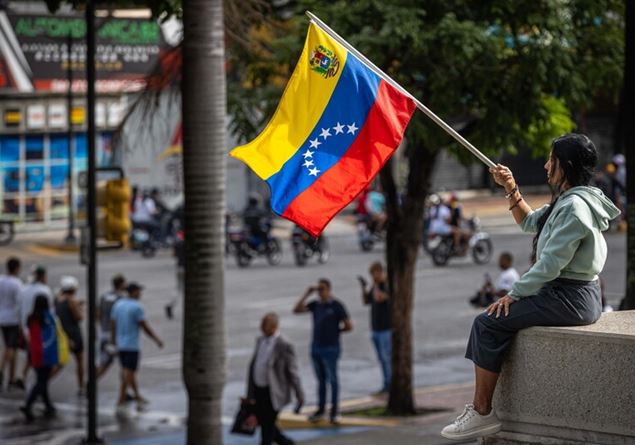“Vultures Dressed as Priests”. Thus the Venezuelan Interior Minister Diosdado Cabello attacked the country’s bishops, guilty of having asked for the release of political prisoners in view of the upcoming canonizations. But behind the insult lies an uncomfortable truth: in Venezuela, the Catholic Church has become the last bastion of resistance against a regime that no longer even tolerates prayer. While the world celebrates María Corina Machado, Nobel Peace Prize winner 2025the Venezuelan bishops pay the price for their choice of field: to be on the side of the last, of the persecuted, of those who ask for justice. And Nicolás Maduro’s regime, increasingly isolated, responds with repression, arrests, and rhetoric that recalls the darkest times in Latin American history.
The Church as opposition: an uncomfortable voice for Maduro
In Venezuela, the Episcopal Conference has never hidden its position: the country is in the hands of an autocracy that throws citizens into fear, amid arbitrary arrests, economic crisis and democratic decline. THE bishops have been denouncing violations of human rights, rigged elections and the persecution of dissidents for years. They are no longer just spiritual guides, but political actors, accused by the government of being “a party against the people”. Minister Cabello does not mince words: “There is no need to make a distinction between the ecclesiastical hierarchy and the opposition, because the ecclesiastical hierarchy is part of the Venezuelan opposition.”
In fact, after the appeal of the Venezuelan priests for the release of political prisoners, the tuna became soured. The government has defined the bishops as “vultures dressed as priests”, while the Armed Forces are preparing for the “worst”. But the Church does not retreat. On the contrary, on the occasion of the canonization of the first two Venezuelan saints, Mother Carmen Rendiles and Dr. José Gregorio Hernández, the bishops explicitly asked Pope Leo XIV to intercede for the release of the prisoners, transforming a religious celebration into an act of political defiance.
María Corina Machado: the Nobel that reveals the crisis of the regime
On 10 October 2025, the Nobel Committee awarded the Peace Prize to María Corina Machado, opposition leader, «for her tireless work in promoting the democratic rights of the Venezuelan people and for her fight for a just and peaceful transition from dictatorship to democracy». A recognition that comes while Machado lives in hiding, after having defied the ban on running for president in 2024 and having led an electoral campaign which, according to the opposition, would have seen its candidate Edmundo González Urrutia win with over 70% of the votes. The regime responded with repression: 24 deaths, 2,400 arrests, and González’s flight into exile. Machado, however, remained. And today, with the Nobel, it becomes the symbol of a battle that goes beyond the borders of Venezuela.
“Maduro will leave power, with or without negotiation,” Nobel declared in an interview with AFP, underlining that the balance of power has changed: “The world knows that they have lost. We have demonstrated our victory.” His words resonate as a condemnation of a regime that, despite the facade of strength, trembles in the face of international pressure and popular mobilization.
The Church between faith and politics: an increasingly central role
The Venezuelan Catholic Church is not new to this role. Already under Hugo Chávez, the bishops had denounced the authoritarian drift. Today, with Maduro in his third term (not recognized by the international community), their voice is even stronger. The Episcopal Conference reiterated that the 2024 elections were a farce, and that the real winner is the people, deprived of their will. But the regime does not forgive: the bishops are accused of being “devils in skirts”, and the population, tired of the crisis, begins to abandon Catholicism, moving on to evangelical churches, often closer to power.
Yet, the Church remains a beacon. «Animates hope between repression and disillusionment», remembering how parish priests and bishops support the population, report disappearances, and ask for justice for the detainees. A commitment that costs dearly: just a few days ago, Minister Cabello attacked the CEV for having shared a list of prisoners at risk, to be released urgently.
The Venezuelan situation is at the center of global attention. The United States, which does not recognize Maduro, has increased the reward for his capture to 50 million dollars, accusing him of drug trafficking and links to international terrorism. Donald Trump has been threatening military intervention for months, while the American fleet patrols the Caribbean coasts. Machado, for his part, does not hide his support for Washington: “We count on President Trump and democratic nations as our allies for freedom.” But the real issue at stake is the democratic transition. “Without freedom there is no peace, and without strength there is no freedom when facing a narco-terrorist structure,” Machado said, asking for guarantees for the military who will abandon the regime. An appeal that is also echoed among the bishops, who ask for a peaceful solution, but without compromises with the dictatorship.
In Venezuela today, a game is being played that goes beyond politics. It is a battle for dignity, for the right to choose one’s future, for the freedom to pray without being accused of treason. The bishops, with their courage, remind us that faith cannot be separated from justice. María Corina Machado, with her Nobel, embodies the hope of an exhausted, but not defeated, country. And the regime, increasingly isolated, responds with violence, because it knows that history, this time, is not on its side.


